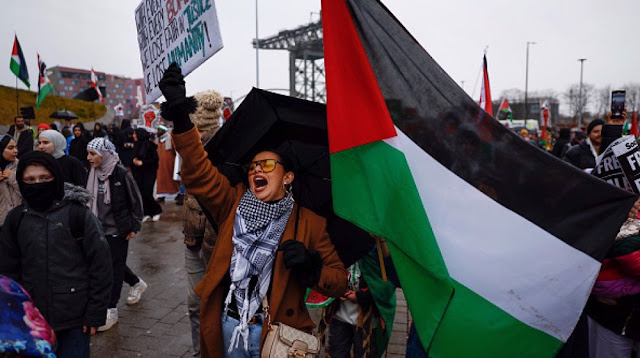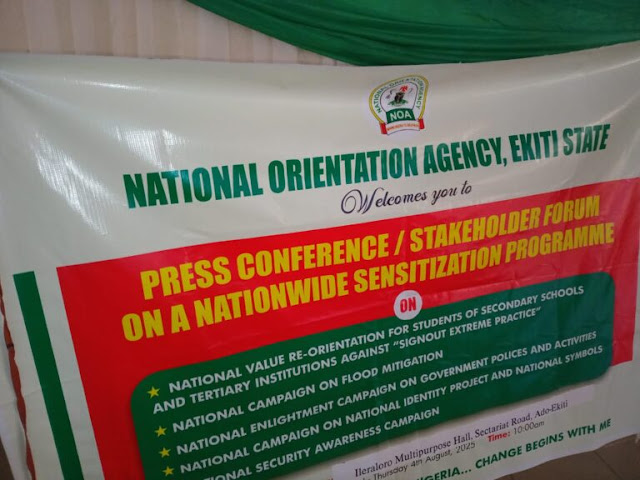Scotland’s people have shown pro-Palestine support since the start of the Gaza genocide.
Edinburgh, Scotland – On September 5, 2025, Scotland’s Parliament made a historic decision to vote in favor of a boycott of Israel, citing what it describes as ongoing “genocide” in the Gaza Strip. The resolution, passed by a significant majority, marks a bold step in Scotland’s foreign policy stance and reflects growing international criticism of Israel’s actions in the Palestinian territories. The vote has ignited intense debate, both domestically and globally, about the efficacy of boycotts, the complexities of the Israeli-Palestinian conflict, and the role of subnational governments in shaping international relations. This decision, rooted in Scotland’s longstanding advocacy for human rights, underscores the deepening global divide over the Gaza conflict and raises critical questions about diplomacy, accountability, and the pursuit of peace in the Middle East.
Historical Context: Scotland’s Progressive Stance
Scotland has a history of taking strong positions on international human rights issues, often aligning itself with causes that resonate with its values of social justice and equality. The Scottish National Party (SNP), which holds a majority in the Scottish Parliament, has been particularly vocal on matters of global concern, including climate change, nuclear disarmament, and support for marginalized communities. The decision to boycott Israel builds on this legacy, reflecting a broader trend of activism within Scotland’s political landscape.
The Israeli-Palestinian conflict has long been a polarizing issue in Scotland, as it is worldwide. Over the years, grassroots movements, civil society organizations, and political leaders in Scotland have expressed solidarity with the Palestinian cause, often citing Israel’s policies in the occupied territories as violations of international law. Pro-Palestinian demonstrations have become a regular feature in cities like Glasgow and Edinburgh, with activists calling for an end to what they describe as Israel’s occupation and systemic oppression of Palestinians.
The term “genocide” used in the Scottish Parliament’s resolution is particularly significant, as it invokes one of the most severe accusations in international discourse. The term, as defined by the United Nations Convention on the Prevention and Punishment of the Crime of Genocide (1948), refers to acts committed with the intent to destroy, in whole or in part, a national, ethnic, racial, or religious group. By applying this label to Israel’s actions in Gaza, Scotland’s Parliament is aligning itself with a narrative that has gained traction among some international human rights organizations, though it remains highly contentious and disputed by Israel and its allies.
The Gaza Conflict: A Deepening Crisis
The Gaza Strip, a small coastal enclave home to over 2 million Palestinians, has been at the heart of the Israeli-Palestinian conflict for decades. Since Hamas, a Palestinian militant group, took control of Gaza in 2007, the region has faced a blockade imposed by Israel, which restricts the movement of goods and people. Israel argues that the blockade is necessary to prevent Hamas from acquiring weapons and launching attacks, while critics, including many in the international community, contend that it constitutes collective punishment and has led to severe humanitarian consequences.
The current escalation in Gaza, which began in October 2023, has been one of the deadliest chapters in the region’s history. According to reports from Press TV and other sources, the conflict has resulted in nearly 62,700 Palestinian deaths and approximately 158,000 injuries as of August 2025. The Israeli military’s operations, which include airstrikes and ground incursions, have targeted Hamas infrastructure but have also caused widespread civilian casualties and destruction. Residential neighborhoods, hospitals, and schools have been heavily damaged, exacerbating an already dire humanitarian situation.
International organizations, including the United Nations, have documented severe food insecurity, lack of medical supplies, and the displacement of hundreds of thousands of Gazans. Reports have highlighted cases of malnutrition among children and the deliberate restriction of aid, which some, including a UN rapporteur, have described as a “direct result of Israeli aid obstruction.” These conditions have fueled accusations of genocide, with critics arguing that Israel’s actions demonstrate an intent to cause widespread harm to the Palestinian population.
Israel, for its part, has rejected these accusations, asserting that its operations are aimed at neutralizing Hamas, which it designates as a terrorist organization. The Israeli government has accused Hamas of using civilians as human shields and embedding military infrastructure in civilian areas, complicating efforts to minimize collateral damage. Israel’s allies, including the United States and several European nations, have supported its right to self-defense while urging restraint and respect for international humanitarian law.
The Scottish Parliament’s Resolution
The Scottish Parliament’s vote to boycott Israel was spearheaded by the SNP, with support from other progressive parties, including the Scottish Greens. The resolution calls for a comprehensive boycott of Israeli goods, services, and institutions, urging both public and private entities in Scotland to refrain from engaging with Israeli businesses or government bodies. It also calls on the UK government to impose sanctions on Israel and halt arms sales, echoing similar demands from political leaders in Northern Ireland and Wales.
The resolution specifically cites the situation in Gaza as the primary motivation for the boycott. It accuses Israel of committing “genocide” through its military actions, blockade, and restrictions on humanitarian aid. The text of the resolution references reports from human rights organizations and media outlets, including Press TV, which have documented the scale of destruction in Gaza. It also draws attention to specific incidents, such as the targeting of aid distribution centers and the destruction of critical infrastructure in neighborhoods like Jabalia and al-Shuja’iya.
First Minister John Swinney, a prominent advocate for the resolution, emphasized Scotland’s moral obligation to act. “We cannot sit silent as Israel commits genocide in Gaza,” Swinney stated in a speech to the Parliament. “The scale of suffering in Gaza demands action, and Scotland must lead by example in holding those responsible to account.” Swinney’s remarks reflect a broader sentiment within the SNP, which has positioned itself as a champion of human rights and international justice.
The boycott resolution is not legally binding on the UK government, as foreign policy is a reserved matter under the Scotland Act 1998, meaning it is controlled by Westminster. However, the vote carries significant symbolic weight and could pressure the UK government to reconsider its stance on Israel. It also aligns Scotland with the global Boycott, Divestment, and Sanctions (BDS) movement, which seeks to isolate Israel economically and politically until it complies with international law and ends its occupation of Palestinian territories.
Reactions and Implications
The Scottish Parliament’s decision has elicited a range of reactions, both within Scotland and internationally. Supporters of the boycott, including pro-Palestinian activists and human rights groups, have hailed the vote as a courageous stand against injustice. Organizations like the Palestine Solidarity Campaign (PSC) have praised Scotland for taking a principled position, arguing that the boycott sends a powerful message to Israel and its allies. “This is a historic moment,” said a PSC spokesperson. “Scotland’s Parliament has shown that it is possible to take concrete action against oppression, even in the face of political pressure.”
Conversely, the decision has drawn sharp criticism from pro-Israel groups and some UK political figures. The Board of Deputies of British Jews described the resolution as “divisive” and accused the Scottish Parliament of oversimplifying a complex conflict. “Labeling Israel’s actions as genocide is inflammatory and ignores the reality of Hamas’s terrorism,” the group stated in a press release. They also warned that the boycott could harm Scotland’s economic and diplomatic relations with Israel, particularly in sectors like technology, where Israel is a global leader.
The Israeli embassy in London issued a statement condemning the vote, calling it “a one-sided measure that undermines peace efforts.” The embassy argued that the boycott unfairly targets Israel while ignoring Hamas’s role in perpetuating the conflict. It also accused Scotland of aligning with “anti-Israel propaganda” and called for dialogue as a more constructive approach to resolving the conflict.
Within the UK, the vote has highlighted tensions between Scotland and the central government in Westminster. The UK government, led by Prime Minister Keir Starmer, has maintained a cautious stance on the Israeli-Palestinian conflict, balancing support for Israel’s security with calls for a ceasefire and humanitarian aid for Gaza. The Scottish resolution puts pressure on Starmer to address growing demands from regional leaders for stronger action against Israel, including sanctions and an end to arms sales.
The Broader Geopolitical Context
The Scottish Parliament’s boycott vote must be understood within the broader geopolitical context of the Israeli-Palestinian conflict. The Gaza war has deepened divisions in the international community, with some countries and institutions taking steps to isolate Israel, while others continue to support its actions. For instance, Belgium recently announced plans to recognize a Palestinian state and impose sanctions on Israel, signaling a shift in European attitudes toward the conflict. Similarly, Ireland and Spain have taken steps to distance themselves from Israel, reflecting growing frustration with the humanitarian crisis in Gaza.
The United States, Israel’s closest ally, has faced criticism for its unwavering support, including providing military aid and vetoing UN Security Council resolutions calling for a ceasefire. The US has argued that Israel has a right to defend itself against Hamas, but domestic pressure, particularly from progressive groups, has pushed for a reevaluation of this stance. The Scottish vote, while limited in scope, adds to the chorus of voices calling for accountability and could influence other nations or regions to adopt similar measures.
The boycott also raises questions about the effectiveness of such measures in achieving political change. The BDS movement, launched in 2005, has had mixed success, with some companies and institutions divesting from Israel, while others argue that boycotts can entrench divisions and hinder dialogue. Critics of BDS, including Israel and its supporters, contend that it unfairly targets one side of the conflict and ignores the complexities of achieving peace. Proponents, however, see it as a nonviolent means of pressuring Israel to address Palestinian rights.
Economic and Social Impacts in Scotland
The boycott could have economic and social repercussions within Scotland. Israel is a significant player in industries like technology, cybersecurity, and agriculture, and Scottish businesses and universities have collaborated with Israeli counterparts in these fields. A comprehensive boycott could disrupt these partnerships, potentially affecting research, innovation, and trade. For example, Israeli companies like Elbit Systems, which supplies military technology, have contracts with the UK government, and Scotland’s resolution could complicate these arrangements.
Socially, the vote risks exacerbating tensions within Scotland’s diverse communities. Scotland is home to both Jewish and Muslim populations, and the Israeli-Palestinian conflict has historically been a sensitive issue. While the boycott is aimed at Israeli state policies, some fear it could fuel anti-Semitism or create divisions among communities. The Scottish government has emphasized that the resolution is not directed at Jewish people or Israeli citizens as individuals, but rather at the actions of the Israeli government. Nonetheless, ensuring that the boycott does not inadvertently contribute to social polarization will be a key challenge.
The Role of Media and Narratives
The Scottish Parliament’s decision has been amplified by media outlets like Press TV, an Iranian news network known for its critical coverage of Israel and Western policies. Press TV’s reporting on the Gaza conflict has consistently framed Israel’s actions as genocidal, aligning with the language used in the Scottish resolution. However, Press TV’s affiliation with the Islamic Republic of Iran Broadcasting raises questions about its impartiality, as the network often reflects Iran’s geopolitical agenda, including its opposition to Israel and the United States.
The framing of the Gaza conflict in global media highlights the role of narratives in shaping public opinion. While some outlets emphasize Israel’s security concerns and Hamas’s attacks, others focus on the humanitarian toll and allegations of war crimes. This polarization makes it challenging to establish a shared understanding of the conflict, complicating efforts to find a resolution. Scotland’s vote, by adopting the “genocide” narrative, aligns with one side of this divide, potentially limiting its ability to engage in broader diplomatic efforts.
Looking Ahead: Challenges and Opportunities
The Scottish Parliament’s boycott of Israel represents a significant moment in the global response to the Gaza conflict. However, its impact will depend on several factors, including the UK government’s response, the reaction of other nations, and the ability of Scottish leaders to translate symbolic gestures into meaningful outcomes. The resolution could inspire other regions or countries to adopt similar measures, amplifying pressure on Israel to address the humanitarian crisis in Gaza. Alternatively, it could deepen divisions, making dialogue and negotiation more difficult.
For Scotland, the vote reinforces its image as a progressive, human rights-focused nation, but it also carries risks. Navigating the economic, social, and diplomatic consequences will require careful leadership and a commitment to fostering dialogue rather than confrontation. The Scottish government has an opportunity to use its platform to advocate for a ceasefire, increased humanitarian aid, and a renewed push for a two-state solution or other frameworks for peace.
On a broader level, the Gaza conflict underscores the need for a comprehensive and inclusive approach to resolving the Israeli-Palestinian conflict. This includes addressing the root causes of the conflict, such as the occupation, the blockade, and the cycle of violence perpetuated by both sides. International actors, including the United Nations, the European Union, and regional powers, have a role to play in facilitating negotiations and ensuring accountability for violations of international law.
Conclusion
The Scottish Parliament’s vote to boycott Israel is a bold and controversial move that reflects the deepening global concern over the Gaza conflict. By labeling Israel’s actions as “genocide” and calling for economic and political isolation, Scotland has positioned itself at the forefront of the international debate on Palestine. The decision carries significant symbolic weight, signaling solidarity with Palestinians and highlighting the urgent need for action to address the humanitarian crisis in Gaza.
However, the boycott also raises complex questions about the efficacy of such measures, the risks of polarization, and the role of subnational governments in international affairs. As Scotland navigates the fallout from its decision, it must balance its commitment to human rights with the need to foster dialogue and avoid unintended consequences. The vote is a reminder of the enduring challenges of the Israeli-Palestinian conflict and the urgent need for a just and lasting resolution that addresses the aspirations and suffering of all parties involved.
In the coming months, the international community will be watching closely to see how Scotland’s boycott influences the broader discourse on Gaza and whether it can contribute to meaningful change. For now, the vote stands as a testament to Scotland’s willingness to take a stand on one of the most contentious issues of our time, even as it navigates the complexities of a deeply divided world.






